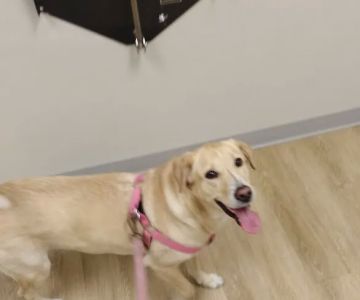- Understanding Pet Heart Disease
- Recognizing the Symptoms of Heart Disease in Pets
- Importance of Veterinary Care for Pets with Heart Disease
- Adjusting Your Pet’s Diet for Heart Health
- Monitoring and Medication for Heart Disease in Pets
- Providing Physical Activity for Pets with Heart Disease
- Providing Emotional Support for Your Pet
Understanding Pet Heart Disease
Heart disease is a common issue that affects many pets, particularly as they age. Like humans, animals can suffer from a variety of heart conditions, ranging from heart murmurs to congestive heart failure (CHF). When a pet’s heart is not functioning properly, it can lead to serious health complications that require long-term management. Understanding pet heart disease is crucial for any pet owner who wants to ensure their furry friend lives a long and healthy life.
Heart disease in pets is often a gradual process, and many pets may not show symptoms until the condition has progressed. This makes early detection and management critical. The causes of heart disease in pets can vary; genetic predispositions, infections, high blood pressure, and obesity are just a few factors that can contribute to heart problems. As a pet owner, it’s important to understand how to manage the disease and improve your pet's quality of life.
Recognizing the Symptoms of Heart Disease in Pets
Recognizing the early signs of heart disease in your pet can significantly improve their prognosis. Some symptoms may be subtle at first, and others might be more pronounced as the disease progresses. Here are a few common signs of heart disease in pets:
1. Coughing
One of the most noticeable signs of heart disease, especially in dogs, is a persistent cough. This can occur due to fluid buildup in the lungs, a common symptom in pets with heart failure. If you notice your pet coughing frequently, particularly at night, it could indicate a heart issue.
2. Difficulty Breathing
Pets with heart disease may have difficulty breathing, especially after exercise or when lying down. Rapid or labored breathing is a serious symptom and should prompt a visit to the veterinarian. This can occur due to the accumulation of fluid in the lungs, which is common in advanced heart disease.
3. Fatigue or Weakness
A pet with heart disease may seem more lethargic than usual. They might not be as eager to play, walk, or engage in normal activities. This can be a result of the heart not pumping blood effectively, which leads to poor oxygen distribution throughout the body.
4. Weight Loss or Poor Appetite
Weight loss, coupled with a lack of interest in food, can indicate that your pet is suffering from heart disease. Poor circulation and fluid retention can lead to loss of appetite and weight loss, especially in the later stages of the disease.
5. Swollen Abdomen or Limbs
Fluid buildup in the abdomen (ascites) or limbs (edema) is a serious sign of advanced heart disease. This can occur when the heart is unable to pump blood effectively, causing fluid to accumulate in various parts of the body.
Importance of Veterinary Care for Pets with Heart Disease
When it comes to managing heart disease in pets, regular veterinary care is essential. Your vet will monitor your pet’s condition through routine check-ups, diagnostic tests, and ongoing treatments. A veterinarian’s role is to evaluate the severity of the heart disease, provide treatment options, and help you develop a care plan tailored to your pet’s needs.
Here are some of the key reasons why veterinary care is so important:
1. Early Diagnosis
Regular check-ups are crucial for early diagnosis. Often, heart disease can be detected through a physical exam, such as listening for abnormal heartbeats or murmurs. Blood tests, X-rays, and ultrasounds may also be used to confirm the diagnosis and determine the severity of the disease.
2. Tailored Treatment Plans
Each pet with heart disease requires a treatment plan customized to their specific condition. Your vet may recommend medication to manage symptoms, such as diuretics to reduce fluid buildup, ACE inhibitors to improve heart function, or beta-blockers to regulate heart rate. Some pets may also need to be monitored for blood pressure and electrolyte levels.
3. Preventing Complications
With proper treatment, many pets with heart disease can live comfortable lives for years. Regular veterinary visits help prevent complications by adjusting medications as needed, monitoring side effects, and addressing new symptoms as they arise.
Adjusting Your Pet’s Diet for Heart Health
Diet plays a significant role in managing heart disease in pets. Proper nutrition can help support heart function, manage weight, and reduce strain on the heart. When adjusting your pet's diet, here are some key points to consider:
1. Low-Sodium Diet
A low-sodium diet is often recommended for pets with heart disease, especially if they have congestive heart failure. Too much salt can lead to fluid retention, which worsens symptoms such as swelling and difficulty breathing. Your veterinarian can recommend specific low-sodium pet foods designed to support heart health.
2. High-Quality Protein
Protein is essential for maintaining muscle mass and overall strength. However, in pets with heart disease, it’s important to choose high-quality, easily digestible protein sources to avoid overburdening the kidneys.
3. Omega-3 Fatty Acids
Omega-3 fatty acids found in fish oil and certain types of vegetables have anti-inflammatory properties that can benefit pets with heart disease. These healthy fats support cardiovascular health and may help reduce inflammation in the heart and blood vessels.
4. Smaller, More Frequent Meals
Pets with heart disease may benefit from eating smaller, more frequent meals to avoid the strain that large meals can place on the heart. This can help with digestion and prevent bloating, especially if your pet has fluid retention.
Monitoring and Medication for Heart Disease in Pets
For pets with heart disease, consistent monitoring and medication management are crucial for maintaining their health. Regular veterinary visits and ongoing monitoring help ensure that treatment plans are effective and adjust medications as needed. Some common medications prescribed to pets with heart disease include:
1. Diuretics
Diuretics help reduce excess fluid in the body, relieving symptoms like swelling and difficulty breathing. These are often prescribed for pets with congestive heart failure.
2. ACE Inhibitors
ACE inhibitors help relax blood vessels and reduce the heart's workload. This medication is particularly beneficial for pets with dilated cardiomyopathy or chronic heart failure.
3. Beta-Blockers
Beta-blockers are used to control abnormal heart rhythms and regulate heart rate, which can help improve circulation and reduce symptoms of heart disease.
Providing Physical Activity for Pets with Heart Disease
Physical activity is an important part of managing heart disease in pets, but it must be approached carefully. Overexertion can worsen symptoms, so it’s important to tailor exercise routines to your pet’s capabilities. Short, frequent walks and gentle play can help maintain muscle tone and support cardiovascular health without overburdening the heart.
Providing Emotional Support for Your Pet
Pets with heart disease may experience emotional stress due to their physical limitations. Providing emotional support and ensuring they feel safe and comfortable is essential for their overall well-being. Spend quality time with your pet, offer comfort when needed, and create a calm, soothing environment that promotes relaxation and peace.
Caring for a pet with heart disease requires commitment, but with the right management strategies, your pet can live a fulfilling life. If you need assistance with managing your pet’s heart health, consider exploring the options available at Hidden Brook Veterinary, where we offer expert care and tailored treatment plans for pets with heart conditions.











